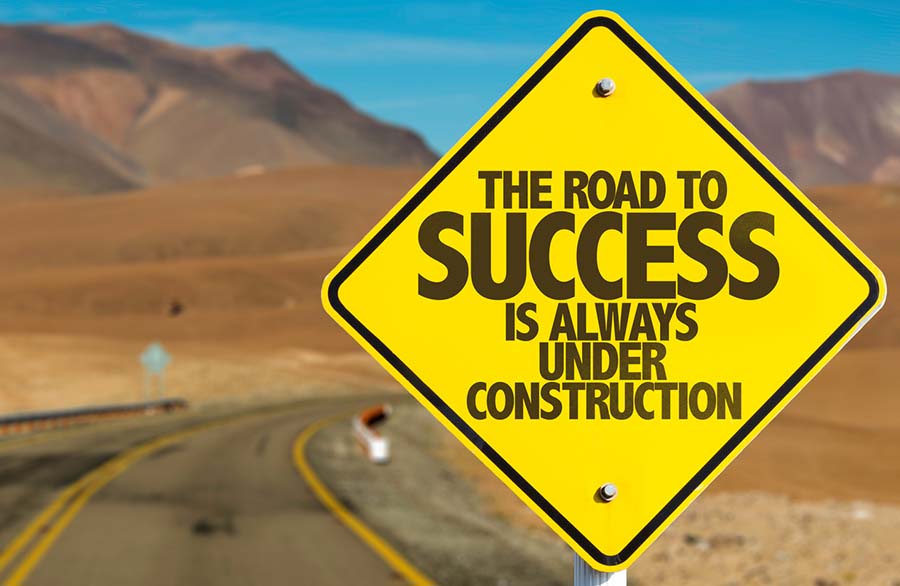In his lyrical essay, “Return to Tipasa,” French novelist, Albert Camus, wrote: “In the depth of winter, I finally learned that within me there lay an invincible summer.” His powerful text reflects on his second journey home since World War II. On his first trip, he wanted Tipasa to be just as he remembered.
There’s a poignant lesson from Camus’ writing, whether we’re forced to adapt to change or have chosen our path. Being tied to a particular outcome or having unrealistic expectations for areas outside our control typically leads to disappointment. Likewise, it’s our ability to know and trust ourselves that helps us overcome adversity. Throughout all transformational journeys, there will be tests and detours. The more we understand how we react to adverse situations, the more we can notice reoccurring themes and triggers, and face our obstacles head-on. In the spirit of never giving up, here are some ways that have helped me breakthrough challenges.
Overcome Resistance And Get Back On Track:
1. Remember the “why.”
This is your purpose. Why did you embark on your transformational journey? Revisit your initial plan, review your mission, and evaluate current status. If you still want to achieve your desired outcomes, remain true to yourself, and forge through. Do you remember the children’s story about “The Little Engine That Could?” Be the little blue engine, stay the course, and repeat the engine’s mantra “I think I can, I think I can” or better yet, amend it to “I know I can, I know I can!”
2. Celebrate what you’ve accomplished so far.
Don’t be so hard on yourself. As Tao Te Ching’s popular adage states, “A journey of a thousand miles begins with a single step.” Take note of and celebrate the progress you’ve already made. If you haven’t yet started, here are five steps to help you gain clarity, organize your thoughts, and outline an action plan so you can start your journey now.
3. Call it what it is.
Our mind can play tricks on us, from making excuses about why to wait, to distracting us with too many details. Honor yourself for recognizing that you’re in a state of resistance. Awareness is the first step for confronting opposition. Reflect and ask yourself, “Am I headed in the right direction?” If you confirm, yes, then remain steadfast. If you’re uncertain, look at the situation from alternative angles. What can you learn from it? What’s different or holding you back?
4. Identify the root cause.
It’s our blind spots that are at the heart of resistance. If you’re not sure what yours are, spend time learning more about your innate behaviors and preferences. There are methods and tools available that can guide your awareness about who you are, and your underlying patterns and biases. With this learning you can more effectively – and consciously – manage yourself and your relationships.
5. Challenge yourself.
Once you identify your blind spots or root causes of resistance, move past your long-held beliefs. Declare, “This no longer applies” and turn your attention to creating new situations and stories about who you are and what you can accomplish. You’re stronger than you know.
6. Take one step forward.
Transformation will occur when you have committed to “I am changing this behavior; I choose this path instead.” Believe in yourself, identify your mission, and stay dedicated. Your attitude toward what you want to achieve makes all the difference. You must have the intense desire to change. Read my previous blog post on five characteristic traits that can help you change.
7. Redirect your energy.
Sometimes we’re our own worst enemy and can focus too much on the situation. The more attention you give to it, the more issues and distractions you’ll find. Instead, redirect your effort toward other areas that make you happy and productive. This will help you focus your mind and engage your body on things within your control.
8. Be patient.
Change takes time. Let go and be patient. Take a break and work on another priority. When you feel ready, return to the previous activity, and start again with a fresh perspective and the confidence to achieve.
9. Consult a friend, mentor, or coach.
Reach out to someone you trust, talk it through, and get their perspective. Sometimes, that’s all you may need – a friendly ear from someone who has your back. These individuals may also be able to see things you don’t and offer suggestions or have a solution that’s worked for them. By speaking to someone else you can release negativity and begin again.
10. Get Inspired.
Learn from the masters or others that you respect. Pick up a book, watch TV, or listen to someone else’s transformational journey. Be inspired and empowered by their actions to begin again.
If you’re feeling stressed or apathetic, I encourage you to try these methods. As someone easily diverted by external factors, I get it. These ten ways have helped me tackle barriers and learn along the way. I hope they help you as well.

